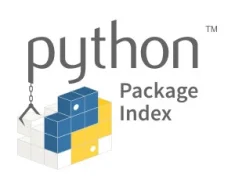A cross-disciplinary research team from the University of Alberta is using health-related, lifestyle, socio-economic and other data to develop machine learning programs to predict the future mental and physical health of aging Canadians.
The approach could one day be used to assist health-care teams to provide individualized care and promote healthy aging, says principal investigator Bo Cao, associate professor of psychiatry, adjunct professor of computing science and Canada Research Chair in Computational Psychiatry.
“Machine learning is a powerful and useful computational method to utilize rich de-identified data,” he says. “If we want to push for future individualized patient prediction for certain health outcomes, we need to leverage machine learning techniques.”
Cao’s team used machine learning in two recently published studies to identify patterns and analyze them to benefit patients with data from the Canadian Longitudinal Study on Aging (CLSA) for more than 30,000 Canadians between the ages of 45 and 85 who will be followed for up to 25 years.
“This is the top-notch data from Canada,” says Cao, who is also co-director of the U of A’s cross-faculty Computational Psychiatry group. “Our goal is to contribute to the health of Albertans and Canadians. We hope to develop a healthy aging trajectory for every one of us.”
How old are you really?
In the first paper, published in top aging journal Gerontology, the team developed a biological age index by applying machine learning models to blood test data from the CLSA.
Much like the comparison made back in the 1970s by the Participaction program between the fitness levels of a 30-year-old Canadian and a 60-year-old Swede, your body may be physiologically older or younger than your chronological age. The researchers call that difference the “BioAge gap.”
The team, which also included Eleni Stroulia, Roger A. Dixon and Russ Greiner from the Faculty of Science, investigated associations between the BioAge gap and lifestyle, environmental factors and health conditions. They reported strong associations for a positive BioAge gap (“older” than chronological age) with chronic illness, frequent consumption of processed and red meat, smoking and passive exposure to smoke.
Several modifiable factors such as consumption of fruits, legumes and vegetables were associated with a negative BioAge gap (“younger” than chronological age.)
“Understanding these associations and identifying risk factors for differential aging could guide effective public health recommendations to promote healthy longevity,” the team reports in their paper.
Cao hopes the approach could also one day influence the health care individuals receive. He says the next step for the research will be trying to understand which factors or combination of factors are the most important in affecting the biological aging process.
Predicting future mental health
In the second study, the team developed a program that accurately predicted which individuals would experience depression onset within three years.
The machine learning model was trained by working backwards using records for individuals who were eventually diagnosed with depression. Participants who had been previously diagnosed with depression or had higher scores on a self-reported scale of depression symptoms were excluded.
“We identified existing subthreshold depression symptoms, emotional instability, low levels of life satisfaction, perceived health and social support, and nutrition risk as the most important predictors for depression onset,” the researchers state in their paper.
The model was about 70 per cent accurate at predicting which study participants would develop full-blown depression within three years at the individual level, Cao says, and it was still accurate when subthreshold depression symptoms were removed.
“It’s interesting that even using only personality measures, perceived health or mental health, nutrition and other factors not directly relevant to depressive symptoms and stress, depression can still be predicted,” says Cao.
Cao says neither the mental health machine learning model nor the BioAge model is refined enough for real-world implementation at the current stage, but that is his goal, so more research and testing are planned.
“We are trying to establish a conversation that includes different groups — clinicians, patients and people with lived experience — to demonstrate this kind of model can benefit the general public.”
The research for both papers was funded by the Canada Research Chairs program, Alberta Innovates, Mental Health Foundation, Mitacs Accelerate program, Simon & Martina Sochatsky Fund for Mental Health, Alberta Synergies in Alzheimer’s and Related Dementias program and University Hospital Foundation. The Canadian Longitudinal Study on Aging is funded by the Canadian Institutes of Health Research and the Canada Foundation for Innovation. Bo Cao is a member of the Women and Children’s Health Research Institute, AI4Society, the Neuroscience and Mental Health Institute and the SMART Network Centre.



